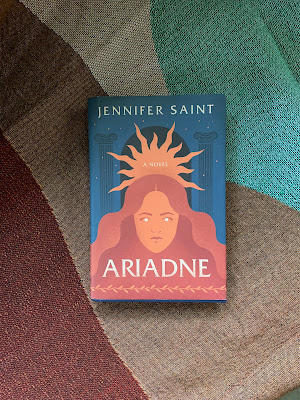1984
 |
| source |
Newspeak, doublethink, thoughtcrime, crimestop - right. Big Brother, Oceania, Thought Police. These are the words that keep rolling and tumbling around in my brain while and after reading this book, probably because I still couldn't get over how extreme and cerebral the plot was.
Yes, cerebral. Mental. Want to push your brain into having some good, intellectual calisthenics? Here's a book for you.
1984 is set, well, in the year 1984, in a place called Airstrip One, formerly known as London, and which now forms part of Oceania, one of three super-continents (along with Eastasia and Eurasia) that are forever at war over power. The protagonist is a member of the Outer Party (as distinguished from the Inner Party) named Winston Smith, and like all other citizens of Oceania, Winston's every movement, word, habit, and (possibly even) thought are picked up by and monitored through a telescreen installed in his apartment. Winston lives in a society ruled over by the omniscient and omnipresent Big Brother: a dystopian society where the past is altered, lies are truth, and human emotions are almost extinct. Despite the Party's attempts to indoctrinate its citizens and erase/alter the past, however, Winston remains and thrives in it, and longs for the day when the totalitarian regime presided over by Big Brother would be overthrown - completely clueless that everything and everyone are not what they seem to be.
The novel is divided into three parts. Let me try to put my thoughts down about each part.
Part I. It was difficult to get into the groove of the story. I'm not exactly a fan of dystopia (or negative utopia), so it was with hulking effort that I read through this chapter, which describes Winston's life in Airstrip One: his job, his surroundings, his community, the Party, its slogan and teachings. War is Peace. Freedom is Slavery. Ignorance is Strength. Hmm. Oooo-kay.
The last sub-parts of Part I pick up, however, with the introduction of another character, Julia, also a member of the Party. She figures majorly in Winston's personal life, which continues in...
Part II. This was the most difficult and tiresome part to read, and I think most of those who have already read this book will (friggin') agree with me. As I turned each page, at the back of my mind I kept wishing, please let this be the last one, please let this be the last one....
Part III. The best part, I think, because in this part was the culmination of all the suspense from the previous two parts. I've already had my suspicions in the beginning, and it turned out that I was right.
To sum it up, 1984 was an interesting, intense and - forgive me for being repetitive - cerebral read. Half of the time (especially in the second part) I would find myself getting lost, not quite fully comprehending a sentence or paragraph I'd just read. And it's not in the writing, which was prolific. The difficulty I encountered was brought about more by the ideas and concepts behind the plot, and the entire theory of the dystopian society formed by Orwell. The intensity came, for me, in Part III, and this is where questions began forming in my head: What's the point of doing this and that? What is the object of the Party, really? And who the f--- is Big Brother???
I realize that 1984 was written way, way back, and that Orwell may have just foreseen or imagined a future society and place similar to that of the book. 1984 reminded me a lot of the movie Enemy Of The State starring Will Smith, where Will Smith's every move was being monitored by the authorities using a satellite. When I saw the movie, I kept thinking how it would be like to live in a world like that - where privacy is a thing of the past. Now that I've read 1984, I shudder to think how it would have felt like to be Winston or Julia, knowing that other people could penetrate even your most private of thoughts, every single thing - even food - is controlled by the government, and worse, where you could be punished or tortured for just thinking negatively against the government. People are reduced to mere automatons, and fed lies as gospel truths. Can you just imagine living in a world like that? I'd just as soon die.
Despite the negative energy that the book seemed to leave me with, I thought it was a very thoughtful and candid work. I am uncertain as to the originality of the plot, but I will say that I found it compelling enough for me to read it through (add that to the fact that this will be discussed in TFG's first-ever personal book discussion in a couple of weeks). The imagery and over-all atmosphere though, made me utterly depressed. Oh, and did I say that since it was so cerebral, I thought my head would burst?
Rating: 4 out of 5 stars


Comments